
Neuropathy can be a tough nut to crack, but different cannabis strains offer unique approaches to tackling this stubborn pain. Sativas, indicas, and hybrids each bring their own set of benefits to alleviate neuropathy and give you relief.
Sativa strains manage pain while keeping you alert during the day, while indicas are great for nighttime relief and better sleep. For a versatile option that works around the clock, hybrid cannabis strains bring a balanced approach to pain management.
Our hybrid cannabis edibles strike a sweet spot for neuropathy sufferers, marrying indica's pain-relieving, calming effects with sativa's energy boost. Experience flexible relief that adapts to your pain levels and routine and order our Delta 9 edibles.
About neuropathic pain
Neuropathic pain, or nerve pain, is a complex and often debilitating chronic condition. It occurs when nerves in the body become damaged or dysfunctional, causing them to send incorrect pain signals to the brain. Unlike acute pain, which serves as a warning system for immediate threats, neuropathic pain persists long after any initial injury has healed.
Neuropathic pain can stem from:
- Diabetes: High blood sugar levels damage nerves over time, causing diabetic neuropathy in the feet and hands.
- Physical trauma: Accidents, surgeries, or injuries can damage nerves.
- Nerve compression: Conditions such as carpal tunnel syndrome, sciatica, or tumors can pressure nerves and trigger chronic pain.
- Viral infections: Shingles, HIV, or hepatitis attack nerve fibers. Even after the infection clears, this can cause lasting pain.
- Autoimmune disorders: Diseases such as multiple sclerosis can damage the protective myelin sheath around nerves and disrupt normal nerve function.
Diabetes and injury seem to be the most common causes of neuropathic pain, but many people experience symptoms without any visible injury or apparent cause. Here are the common symptoms experienced by individuals with neuropathic pain:
- Persistent burning sensation, often in extremities
- Sudden, sharp pains such as electric jolts
- Tingling, numbness, or "pins and needles" feeling
- Pain from normally painless stimuli (allodynia)
- Pain traveling along nerve paths
- Muscle weakness or balance issues
- Extreme sensitivity to temperature changes
- Problems with blood pressure, sweating, or bladder control
These symptoms can be constant or intermittent and may worsen at night, significantly affecting sleep and quality of life. Doctors prescribe anticonvulsants, antidepressants, or opioids to treat neuropathic pain. While these can manage pain, they often come with unwanted side effects (e.g., drowsiness, dizziness, or even dependency).
Many people are turning to cannabis microdoses as an alternative. Microdosing different strains of cannabis, whether indica, sativa, or hybrid, relieves nerve pain symptoms without the harsh side effects of traditional medications.
How does cannabis manage neuropathic pain?
Whether you're dealing with sciatica, cancer pain, arthritis, HIV-associated neuropathy, or even the widespread discomfort of fibromyalgia, cannabis microdoses offer neuropathic relief. Cannabinoids and terpenes work with the body's pain-regulating endocannabinoid system (ECS), regardless of what's causing the pain.
Cannabis alleviates neuropathic pain in five key ways:
- Anti-inflammatory action: Cannabis compounds reduce inflammation and calm overactive immune cells that contribute to nerve hypersensitivity and pain. Delta 9 THC and cannabidiol (CBD) activate CB2 receptors on immune cells, which reduces the release of pro-inflammatory cytokines. This process dampens the inflammatory response that often worsens nerve pain.
- Reducing hypersensitivity: Manzanares, et. al. explain that cannabinoids interact with vanilloid receptors (TRPV1) in the nervous system, which plays a role in pain sensation. This interaction modulates pain signals to lower the intensity of hypersensitive nerves.
- Neuroprotection: Cannabis exhibits antioxidant properties that protect nerve cells from oxidative stress and damage. THC and CBD may also stimulate neurogenesis and neuroplasticity, which could aid in the repair and regrowth of damaged nerve fibers. A 2009 study explains that these properties may slow or prevent further nerve damage in conditions such as diabetic neuropathy.
- Central nervous system desensitization: Prolonged cannabis use may lead to desensitization of the central nervous system to pain signals. This process involves the downregulation of pain receptors and the modulation of neurotransmitter systems which results in a decreased perception of chronic neuropathic pain over time.
- Improved sleep and mood: Cannabis can enhance sleep quality and reduce anxiety which indirectly aids pain management. THC has been shown to increase deep sleep phases, while CBD's anxiolytic properties break the cycle of pain-induced stress and anxiety. This improves pain tolerance and management.
Cannabis tackles neuropathic pain on several fronts. Different strains have different effects on pain, thanks to their unique combinations of cannabinoids and cannabis terpenes.
Are indica strains good for neuropathy?
Indica cannabis plants have relaxing and sedating effects. They often contain higher levels of CBD than THC. They're typically used for nighttime relief because of their sleep-promoting and relaxing properties. Indicas tend to affect the body more than the mind, producing pleasant physical relief.
Indica strains soothe neuropathy in the following ways:
- They dull persistent nerve discomfort.
- They decrease nerve sensitivity.
- Indicas promote muscle relaxation that eases tension and muscle spasms.
- Indicas reduce inflammation and ease pressure on nerves.
- They lower stress and anxiety levels, helping break the pain-stress cycle.
- These strains improve sleep quality.
- Indicas induce deep overall relaxation and provide general comfort.
Indicas offer relief, but they're not without drawbacks. With pure indica strains, you might feel extra sleepy, have dry mouth, or experience some dizziness. The deep relaxation can sometimes leave you feeling too mellow to be productive.
Are sativa strains good for neuropathy?
Sativa plants are known for their energizing and uplifting effects, often containing higher levels of THC. They're typically used for daytime relief, as they can promote alertness and focus while still offering pain management. Sativas are popular for those who need to remain active and functional while dealing with neuropathic discomfort.
Sativa strains may help manage neuropathy in the following ways:
- They provide pain relief while maintaining mental clarity.
- They enhance focus, helping users stay productive despite discomfort.
- They offer anti-inflammatory properties that may ease nerve pain.
- Sativas boost mood and energy, which may counteract pain-related fatigue.
- These strains reduce anxiety associated with chronic pain.
- Sativas may improve daytime functionality and quality of life.
- They manage pain without excessive sedation.
Sativas may be too intense for some neuropathy sufferers. Their higher THC content can increase anxiety or sensory sensitivity in some users. The energizing effects might also be overwhelming for those seeking pure relaxation. Microdosing is a great way to harness sativa's benefits without feeling overwhelmed.
Product QUIZ
Need help deciding what product is best for you? Take our quiz, just three questions until your perfect match!
The benefits of hybrid strains for nerve pain
Hybrid strains combine the characteristics of both indica and sativa varieties to achieve a balanced approach to cannabis effects. These strains are cultivated to capture each parent's best qualities, giving a diverse range of therapeutic benefits.
For neuropathy sufferers, hybrids can provide tailored relief that addresses multiple symptoms simultaneously. Here’s how:
- They offer balanced pain relief without extreme sedation or stimulation.
- They deliver more nuanced effects, which enables better symptom targeting.
- Hybrids provide both physical relaxation and mental clarity.
- These strains manage pain throughout the day and night.
- They both have physical discomfort and associated anxiety.
- They can offer improved sleep quality without excessive daytime drowsiness.
- These strains often provide a more controlled, predictable experience.
THC and CBD microdoses provide meaningful pain relief throughout the day. Small, regular doses maintain a balance between pain management and daily function. This approach combines the best of sativa and indica effects, tailored to your specific needs and schedule.
Our Relax Plus gummies showcase the benefits of hybrid strains for neuropathy relief. With a gentle 5 mg of THC and a soothing 25 mg of CBD, they offer newcomers an ideal introduction to microdosing, delivering deep relaxation and muscle tension relief without overwhelming effects.
What are the best hybrid strains for neuropathic pain?
We believe hybrids are the way to go because of their balanced, soothing, not-too-extreme approach to pain management, but we’ll leave the choice up to you.
Here are eight strains that have shown promise in alleviating neuropathic pain:
- Blue Dream: This sativa-dominant hybrid provides pain relief with a gentle energy boost, helping manage discomfort while keeping you functional throughout the day.
- ACDC: A high-CBD, low-THC strain that offers significant pain relief with minimal psychoactive effects. This strain is perfect if you’re sensitive to THC or need daytime relief.
- Harlequin: Another CBD-rich hybrid, Harlequin delivers clear-headed pain relief, balancing analgesic properties with mild mood elevation.
- OG Kush: A potent hybrid known for its strong pain-relieving effects and stress reduction, OG Kush addresses physical discomfort and associated anxiety.
- Girl Scout Cookies: This hybrid strain delivers powerful pain relief alongside mood enhancement and relaxation. This is a suitable strain for both day and nighttime use.
- White Widow: This balanced hybrid provides pain relief with a cerebral boost, helping to distract from discomfort while promoting mental clarity.
- Northern Lights: This indica-dominant strain offers deep relaxation and pain relief and is particularly beneficial for nighttime use or when sleep is a priority.
- Jack Herer: This is a sativa-dominant hybrid that combines pain relief with an uplifting mental effect. It manages pain while combating fatigue and depression often associated with chronic conditions.
With our microdosed hybrid products, you don’t have to bother yourself with so many different strain names. Order now and discover a world of balanced, precise relief tailored to your needs.
What are the best gummies for nerve pain?
Our THC gummies and cannabis-infused beverages are a precise and discreet way to microdose for neuropathic pain relief or any other medicinal or recreational purpose. These low-dose products provide consistent dosing so you can find your optimal level of relief. Plus, they're a tasty alternative to smoking or vaping, which can be harsh on the lungs.
Here’s our top pick for the best gummies and drinks to relieve nerve pain:
- Relax Plus gummies: These watermelon-flavored hybrid gummies pack 5 mg of THC and 25 mg of CBD per piece. The higher CBD content helps counteract THC's potentially overwhelming effects and achieve deep relaxation and muscle tension relief. Made from hemp and real fruit, they're perfect for those seeking substantial pain relief with minimal intoxication.
- Bliss Delta 9 gummies: With an equal 5 mg of THC and CBD, these gummies provide a balanced effect ideal for daytime use. They kick in within 30 minutes to 2 hours, which makes them perfect for neuropathic patients who need planned pain relief without compromising mental clarity.
- Energy gummies: Containing only 2.5 mg THC and 5 mg CBD, these offer a gentler approach. The lower THC dose minimizes psychoactive effects, while CBD provides soothing relief for neuropathy patients new to cannabis or anyone needing subtle relief throughout the day.
- Buzz Drops™: Our microdosed cannabis beverages offer ultimate dosing flexibility. With 2.5 mg each of THC and CBD per full dropper, you can easily adjust your intake. This precise, controlled dosing makes our liquid THC drops ideal for chronic pain patients who need to fine-tune their dosage. Simply add them to your favorite non-alcoholic drinks and create stunning THC buzztails™.
All our Delta 9 products feature non-GMO American hemp extract and natural fruit flavors to give you a pure and effective experience. We rigorously test each batch through third-party labs, guaranteeing consistent quality and potency. Our hemp comes from small, organic farms in Colorado and New Jersey, supporting local agriculture and producing 100% American-made products.
Our hybrid gummies and drinks offer a balanced blend of relaxation and energy. This unique combination helps manage pain without interfering with your daily activities. Whether you prefer the precision of gummies or the flexibility of our liquid THC drops, nama™ provides options to tailor your relief to your specific needs.
All our cannabis edibles are federally legal, so you can order online and have them delivered anywhere in 48 US states. (Read more about the state-by-state legality of Delta 9 THC.)
Indica, sativa, or hybrid FAQ
What is the best cannabinoid for neuropathic pain?
For neuropathic pain, CBD seems to be the most promising cannabinoid. It offers potent analgesic and anti-inflammatory effects without the psychoactive properties often associated with THC. Unlike THC, cannabidiol is non-psychoactive. CBD interacts with cannabinoid receptors and other pain-modulating systems in the body to reduce pain perception and calm overactive nerves.
A combination of CBD and THC may provide more comprehensive relief for some patients. THC can enhance pain relief and offer additional benefits such as improved sleep and mood. Many find that high-CBD, low-THC strains or 1:1 CBD:THC ratios offer effective pain management without excessive psychoactive effects.
Does sativa or Indica help nerves?
Both sativa and indica strains help with nerve-related issues, but they work differently.
- Sativa strains are often preferred for daytime use because of their energizing and uplifting effects. They may manage chronic nerve pain while keeping you alert and focused. Sativas can also boost mood, which is beneficial for coping with chronic pain.
- Indica strains are typically more sedating and offer deeper physical relaxation. They're often chosen for nighttime use or when pain is severe enough to interfere with sleep or daily activities. Many patients find that indica strains provide more potent pain relief and muscle relaxation.
Hybrid strains that combine sativa and indica properties often offer the most balanced approach to nerve pain management.
Is sativa or Indica better for inflammation?
Both sativa and indica strains can reduce inflammation, but their effects may differ.
Sativa strains are often rich in CBD, a cannabinoid known for its potent anti-inflammatory properties. They may be effective for daytime use, allowing you to manage inflammation without excessive sedation.
Indica strains, while typically higher in THC, also offer anti-inflammatory benefits. They might be more suitable for nighttime use or when pain and inflammation are severe enough to interfere with sleep or daily activities.
The anti-inflammatory effects of cannabis aren't solely determined by the sativa or indica classification. The specific cannabinoid and terpene profile of each strain is also important. Many patients find that hybrid strains, which combine sativa and indica properties, offer the most balanced approach to managing inflammation and associated symptoms.
Is Indica better than hybrid?
Neither indica nor hybrid strains are inherently better. Their effectiveness depends on individual needs and responses. Indica strains are known for their sedating, full-body effects, so they’re popular for nighttime use, relief from pain and anxiety, and sleep disorders. They often provide deep relaxation and help with anxiety.
Hybrid strains offer a more balanced approach by combining indica and sativa properties. This allows for customized effects, providing pain relief without excessive sedation and addressing multiple symptoms simultaneously. Hybrids can be indica-dominant, sativa-dominant, or balanced, offering flexibility in treatment. Many patients prefer them for their versatility, as they can provide targeted relief while minimizing unwanted side effects.
Is sativa better than indica?
Neither sativa nor indica is universally better. Their therapeutic effects, potency, and effectiveness depend on your needs and medical conditions. Sativa strains are often preferred for daytime use because they are energizing and uplifting. They help manage pain and other symptoms while maintaining mental clarity and focus. Sativas can also boost mood and creativity, which can be beneficial for those dealing with chronic pain or depression.
Indica strains are known for their relaxing, sedating effects. They're often chosen for nighttime use or when deep physical relaxation is needed. Indicas may provide more potent pain relief and help with sleep issues.
Is Indica or sativa better for your brain?
The effects of indica and sativa on the brain can vary. Sativa strains are often associated with more cerebral effects, potentially enhancing focus, creativity, and mood. They may be beneficial for conditions such as depression or attention deficit hyperactivity disorder (ADHD). Sativas typically have higher levels of CBD, which has shown neuroprotective properties.
Indica strains are relaxing and sedating. These properties help with anxiety, insomnia, and stress-related issues. They often have lower levels of THC, which may be safer for your brain because high-THC strains can hinder short-term memory and cognitive function.
Is Indica or sativa better for pain and sleep?
For pain and sleep management, indica strains are often preferred. Indicas have sedating, full-body effects, which can provide potent pain relief and promote sleep. They typically have higher levels of myrcene, a cannabis terpene associated with pain-relieving and sedative effects.
Some patients find that sativa strains, particularly those high-CBD strains, can manage pain during the day without causing drowsiness. For sleep, indicas are more effective because of their relaxing properties. That said, the best choice often depends on the individual and the specific nature of their pain and sleep issues.
What are the best indica strains for pain?
Several indica strains are renowned for their pain-relieving properties.
- Purple Kush is highly regarded for its potent analgesic effects and deep relaxation.
- Northern Lights is another popular strain, known for its ability to alleviate pain while promoting sleep.
- Granddaddy Purple offers strong pain relief coupled with mood elevation, which can be beneficial for chronic pain sufferers.
- Afghan Kush is valued for its intense body high and pain-numbing effects.
- Bubba Kush is noted for its relaxing properties and effectiveness for nerve pain relief.
- Hindu Kush, known for its pure indica genetics, provides strong pain relief and sedation.
Individual responses to these marijuana strains vary, and the effectiveness of a strain depends on the pain type, severity, and personal physiology. Always consult with a healthcare professional when using cannabis for different types of pain management.
Resources
Manzanares J, Julian M, Carrascosa A. Role of the cannabinoid system in pain control and therapeutic implications for the management of acute and chronic pain episodes. Curr Neuropharmacol. 2006 Jul;4(3):239-57. doi: 10.2174/157015906778019527. PMID: 18615144; PMCID: PMC2430692.
Nagarkatti P, Pandey R, Rieder SA, Hegde VL, Nagarkatti M. Cannabinoids as novel anti-inflammatory drugs. Future Med Chem. 2009 Oct;1(7):1333-49. doi: 10.4155/fmc.09.93. PMID: 20191092; PMCID: PMC2828614.
Further reading
Best hybrid strains for neuropathy relief
Sativa or hybrid strains for pain management
Is hybrid perfect for socializing?
Why is hybrid cannabis great for stress relief?
Do hybrids have negative side effects?
Are hybrids stronger than sativa or indica?
Our top Delta 9 gummies for pain relief
nama CBD FDA & legal disclaimer
Our cannabis products are not intended to diagnose, treat, cure, or prevent any disease. They are not a replacement for prescription medications and have not been evaluated by the Food and Drug Administration (FDA).
The information provided on this website does not and is not intended to, constitute legal advice or any statements of the status of any laws. Any information, content, and materials available on this site are for general informational purposes only and are not intended to be relied upon for any purpose.
Readers of this website should contact their attorney to obtain advice concerning any particular legal matter including decisions on what products are, or are not, legal to sell, possess, or consume. No reader, user, or browser of this site should act or refrain from acting based on information on this site without first seeking legal advice from their own counsel in the relevant jurisdiction.
Only your individual attorney can provide assurances that the information contained herein—and your interpretation of it—is applicable or accurate for your particular situation. Use of, and access to, this website or any of the links or resources contained within the site do not create an attorney-client relationship between the reader, user, or browser, and website authors, contributors, contributing law firms, or committee members and their respective employers.
More articles
About
Learn
Join us on this journey

© Copyright 2025 nama Products LLC. All Rights Reserved.
†These statements have not been evaluated by the Food and Drug Administration. These products are not intended to diagnose, treat, cure or prevent any disease. All information presented here is not meant as a substitute for or alternative to information from health care practitioners. Please consult your health care professional about potential interactions or other possible complications before using any product.
††The information provided on this website does not, and is not intended to, constitute legal advice or any statements of the status of any laws. Any information, content, and materials available on this site are for general entertainment purposes only, and are not intended to be relied upon for any purpose.
123 John Doe Street
Your Town, YT 12345
Store Hours
Sun: Closed
Mon-Fri: 9:00 - 17:00
Sat: 10:00 - 13:00
What to expect at pickup
Closed
Closing at 5pm
Closing at 5pm
Closing at 5pm
Closing at 5pm
Closing at 5pm
Closing at 1pm

![Buzz Packs™ [THC and CBD Powder Drink Mix]](http://www.namacbd.com/cdn/shop/files/nama_buzz_packs_thc_drink_pack_white_background.png?v=1741884660&width=480)
![Buzz Packs™ [THC and CBD Powder Drink Mix]](http://www.namacbd.com/cdn/shop/files/Buzz_Packs_Label.png?v=1741884660&width=480)


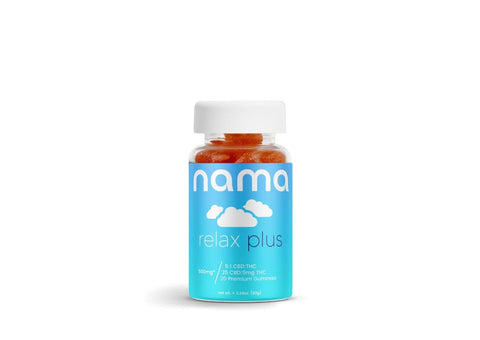

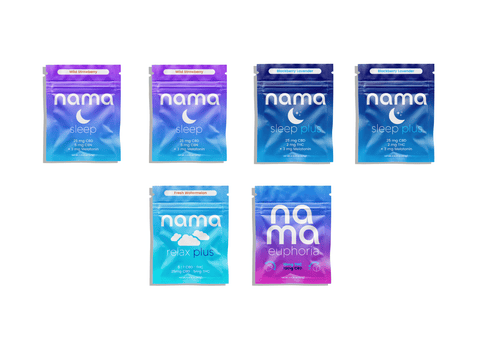
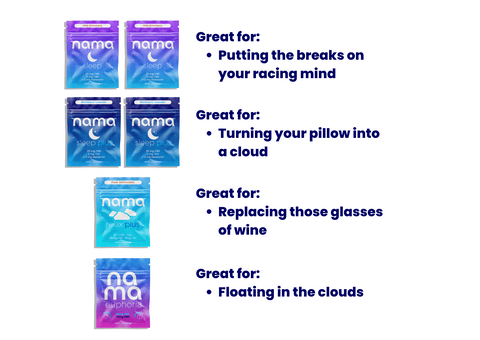
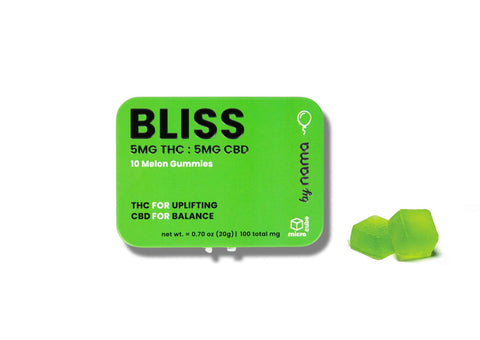
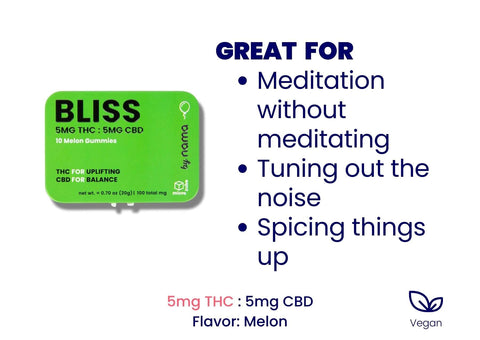
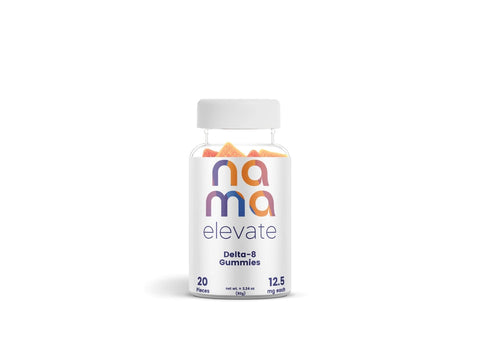
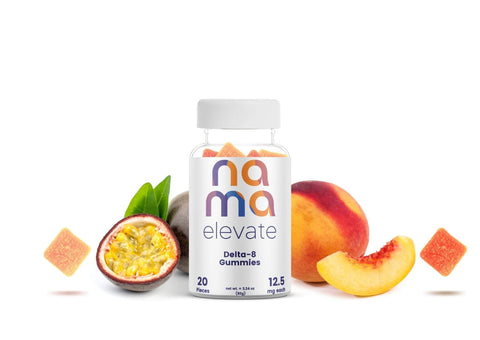
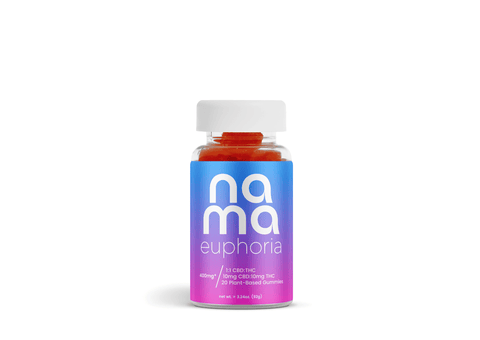
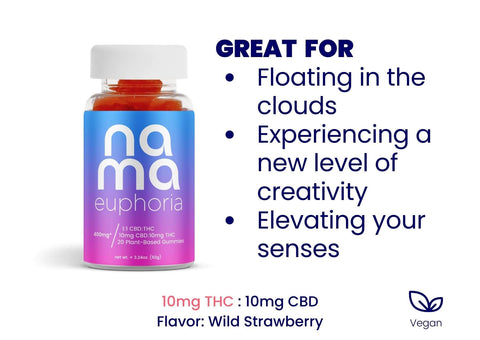
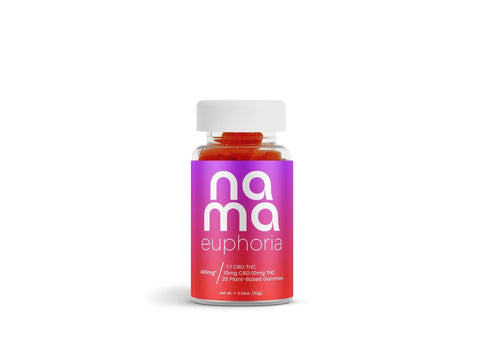
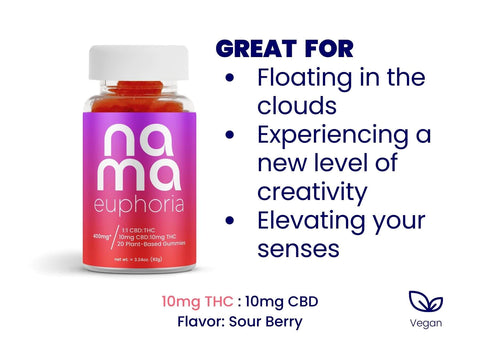









![Buzz Drops™ [THC Drink Drops]](http://www.namacbd.com/cdn/shop/files/nama_thc_buzz_drops.png?v=1711412866&width=480)
![Buzz Drops™ [THC Drink Drops]](http://www.namacbd.com/cdn/shop/files/buzz-drop-wine-comparison.png?v=1736882023&width=480)






Comments (0)
There are no comments for this article. Be the first one to leave a message!